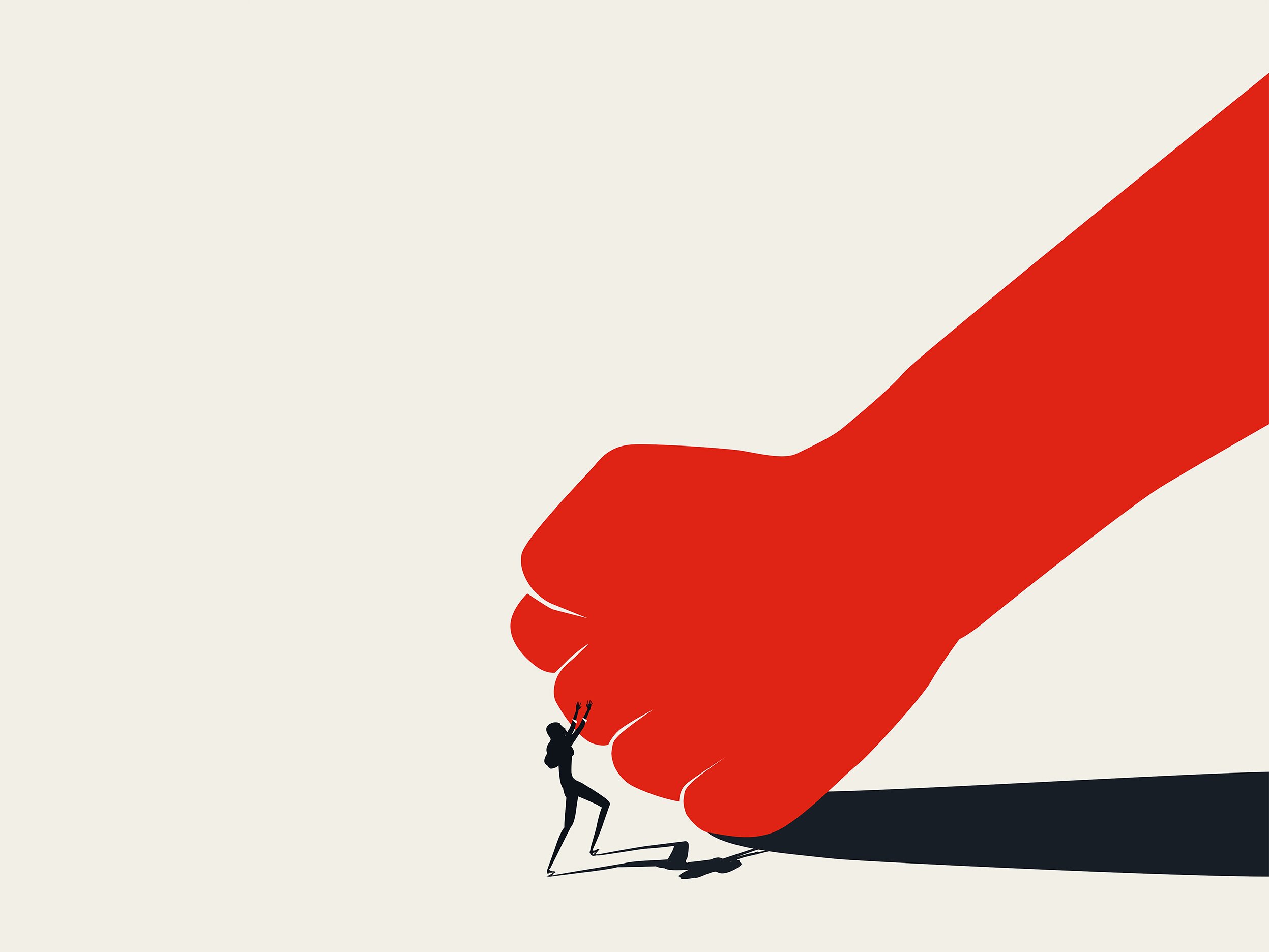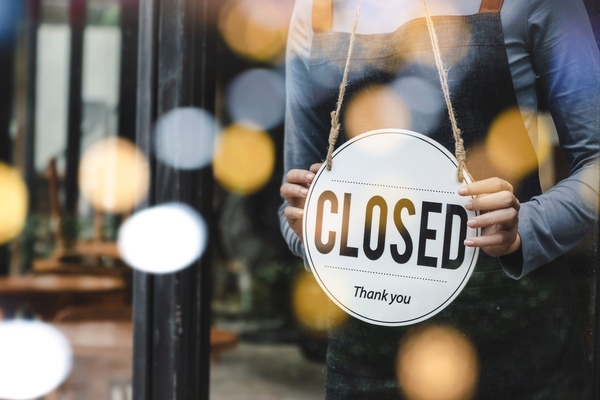How to avoid and resolve conflict in a hospitality workplace
In the second of our three-part series on harassment in the industry in partnership with #FairKitchens, we look at the best ways of avoiding and resolving conflict within the workplace. Rosalind Mullen reports.
Movers and shakers in the industry are agreed that all types of abuse and harassment are unacceptable and give the hospitality workplace a bad name. The traditional attitude of “it’s just banter”, or “there’s too much pressure” is being challenged.
Certainly, the industry can be frenetic – particularly in kitchens – but successful employers are changing this culture through fairer working conditions. And if conflict does arise, rather than ignoring it or being heavy-handed, they are adopting strategies such as mediation as well as open-door policies to find out why it is happening – such as whether staff are expected to work exhausting hours, or are suffering mental health issues and so on.
Inevitably, workplaces see clashes of personalities, but it’s the employer’s duty to set the tone, says Anna Haugh, chef-owner of 32-seat Myrtle restaurant in London’s Chelsea, who employs 13 staff. “People lose their temper; [some] chefs come from more aggressive environments, [other] chefs are young and immature,” she says. “I lead by example, and I talk them through the business’s mindset. Kindness and hard work result in happy, satisfied staff and then happy, satisfied customers.”
Team building is at the heart of Haugh’s strategy and she stresses that it is practised daily rather than being about a work outing once or twice a year.
“Team building is making a cup of tea and sitting down for a short or long break and a chat. I have a small team, so I get to see a lot first-hand. You can see tensions build, [but] so often it can easily be defused with time-out,” says Haugh. “I have managed much bigger teams in much bigger environments and it is a privilege to have a small team. Fist fights and shouting matches are much harder to avoid if you can’t see or hear what’s happening on another floor.”
Zero tolerance
Sally Beck, general manager at Royal Lancaster London, not only has an open-door policy that means anyone can speak to her direct, she also has a robust mediation process in place.
“I have zero tolerance of bullying. I just can’t have it,” she says. “If there’s bullying, abuse or sexism of any type, first there would be mediation and then straight to disciplinary if there’s a problem. Because we have this mediation culture around the hotel, it gets nipped in the bud quickly” (see panel below).
If there’s bullying, abuse or sexism of any type, first there would be mediation and then straight to disciplinary
Asma Khan, chef-owner of Darjeeling Express in London’s Covent Garden, agrees that if and when things go wrong it is crucial to have an open discussion in private. “If we were to have any conflict it would be handled internally. If it were to become a serious allegation I would go for mediation and involve a neutral third party,” she says.
“The worst thing to do is to have a public hanging. It leaves very little space for anyone to redeem themselves if they have made a mistake. It is difficult to resolve issues in a small space like a restaurant as people can pick up tensions. As much as is possible it is important to resolve conflict and anger and any allegations of harassment and bullying away from the rest of the team to protect the mental health of any member of staff who may have suffered.”
It is difficult to resolve issues in a small space like a restaurant as people can pick up tensions
Khan also urges hospitality workers to join a trade union. “This is an organisation that will protect their rights. I wish more members of hospitality were unionised,” she says.
Brian McElderry, executive director of national chefs’ union Unichef, believes that often problems associated with abuse stem simply from managers not spending time with their teams. Similarly, many leaders today have come from an academic background so are good at the financial and administrative running of an establishment, but often lack the capability to be effective on the floor of a busy environment.
“In the past, managers were brought up through the ranks having learned the workings of every department and so gained extensive knowledge and due respect. Today’s managers are often seen by the workforce as desk jockeys whose only aim is to adhere to the budget. Few managers now have sufficient people time, and this reflects heavily on the mutual respect that is so vital in a workplace.”
He appreciates that managers can also be intimidated – particularly if they are female. “It is often a brutal environment, but very often strong leadership is not only respected but admired and can even lead to extreme loyalty.”
Taking sides
While HR is often seen as the first port of call when there is conflict, McElderry suggests that there needs to be a rethink of how difficulties are dealt with, particularly in the kitchen. “To many chefs, HR is seen as another tier of the management structure – not there to help or advise independently, but to ensure the business and the managers are protected.”
He adds: “HR plays a huge part in many conflicts. They have the ability to solve issues at an early stage, but many are frightened to upset the internal structure and so will often side with what they see as their ‘own side’. This is without doubt a huge problem in our industry and one that is rarely brought to light.”
This brings the issue back to trust and transparency. Hospitality Action chief executive Mark Lewis says that creating a positive culture built on robust workplace policies and an open-door management approach will engender an environment in which employees feel able to speak out if they witness or experience abuse.
“Having a formal whistleblowing process in place as part of an employee assistance programme is a valuable resource, as it protects those making disclosures and brings to light issues that might otherwise remain hidden and festering,” he says. “A less formal, but still effective, approach, is to put drop-boxes in place, enabling staff members to confidentially report issues as they arise.”
If employees need more specialised or confidential help – say for mental health or personal issues that are affecting the atmosphere at work – there are many organisations that employers can signpost outside the business (see panel below).
It can also be beneficial to seek outside help to change the culture of your workplace – particularly in kitchens, which are notoriously fraught. Mark Reynolds, executive head chef at Tottenham Hotspur FC and vice-president of the Craft Guild of Chefs and an ambassador for #FairKitchens, says his handling of situations was turned around when an employer gave him the chance to work with a life coach.
“It totally changed my outlook of how you should be running a brigade; how you should be talking to the team,” he says. “[I was] probably a typical chef before – you get into a confrontation and want an answer there and then. But having a life coach taught me to reflect on the situation, walk away from it [then] come back and deal with the situation. You definitely come back with fresh eyes and deal with it in a different way.”
Tackling poor mental health
Poor mental health can trigger flashpoints at work. It can also be caused by the pressure of long hours, bullying and so on. As an employer, you can provide support in several ways:
- the offer of counselling – usually through membership of an employee assistance programme;
- through training mental health champions who can provide peer support; and
- organising regular “coffee chats” or one-to-ones with team members, so staff can give feedback on any issues, and whether they need flexibility to manage home and work-life.
There are also countless charities and organisations out there offering support. Here are a few:
Mind
Mental health support charity.
www.mind.org.uk
Shout
Offers help with issues such as abuse, assault, self-harm, bullying and relationships. Text SHOUT to 85258 to be put in touch with a trained crisis volunteer, or visit its partner website Heads Together.
www.headstogether.org.uk/get-support
The Burnt Chef Project
A social enterprise offering courses and a free text-based support service to those working in the industry.
www.theburntchefproject.com
Where to get help
Hospitality Action
The industry charity helpline offers 24/7 support to hospitality workers, no matter what the issue is. Should bullying lead to stress or anxiety, it can offer or signpost support. There is a free 24/7 helpline on 0808 802 0282, or if your company is a member of the Employee Assistance Programme, staff can access a 24/7 helpline on 0808 802 2111.
www.hospitalityaction.org.uk/advice
Unichef
The union helps both chef members and chef non-members. Check out its Facebook page and website.
www.nationalchefsunion.co.uk
ACAS
Advisory, Conciliation and Arbitration Service that provides free and impartial information and advice to employers and employees on all aspects of workplace relations and employment law. It also provides conciliation to resolve disputes and problems at work. There is also a page with hospitality-specific advice.
Advice line: 0300 123 1100
Citizen’s Advice
Information regarding sexual harassment at work, what it is, and what you can do about it if you’ve experienced it.
Advice line: 03444 111 444 Text relay: 03444 111 445
Chris Galvin on chef training with FairKitchens
Chef and restaurateur Chris Galvin, co-owner of Galvin Restaurants and contributor to the #FairKitchens ‘Leading a Fair Kitchen’ training series.

“Communication tends to be the root of most conflict. In a service situation it needs to be defused quickly – you don’t want it festering. Leadership sets the tone for the entire organisation on how conflict is managed. It’s up to leaders to identify the problem, find out why it’s happened and then resolve it accordingly.
Conflict can arise for so many reasons: whether it’s bullying, a lack of understanding, poor hiring decisions, an ineffective induction process, fatigue… the list goes on. One thing’s for certain: those in a position of leadership need proper training to manage conflict, or indeed prevent it from happening in the first place.
“This speaks to the need for a holistic approach to training and development that goes beyond technical know-how. Practical measures like appraisals can support each team member’s performance, and encompassing value-driven skills like communication, inclusivity and respectful ways of working can highlight what’s needed to thrive in this career above and beyond creative brilliance.
“Supporting people’s development builds the foundation for a healthy workplace culture where people listen to each other and heated situations are nipped in the bud early. Paying attention to wellbeing and career progression can also help create an environment of open communication and mutual respect.”
Creating mediation culture: Sally Beck, general manager, Royal Lancaster London

Tell us why you think a mediation culture works better than a disciplinary culture.
Mediation culture means that it’s not a hierarchical drive. Normally, if there’s a dispute, the manager will bring in the junior and they will have to deal with it and it becomes a big issue, but with mediation the incident will be discussed by the two team members and question why it happened in the first place. They come to the table as equals and both agree to change their behaviour. They then sign [a pledge] to say they won’t do it again.
This works much better than a disciplinary culture and is just part of a respectful workplace, which has made a huge difference to our hotel. A lot of issues in a business come from lack of understanding. For instance, I’ve got 43 nationalities in the hotel, all with different cultural expectations that others may not understand. This can cause problems unless you’re in a trusting environment, and mediation creates that.
You also have an inverted hierarchy. How does this contribute to a respectful workplace?
A traditional hierarchy is where I sit at the top with all of the team beneath me, but with an inverted hierarchy, I sit at the bottom and support people. So, instead of being directive, it’s supportive, and by being supportive [I demonstrate] that’s what I expect of all the managers. I am trying to help the frontline team do the best job they can as they are guest-facing.
Is this part of your commitment to eliminate fear in the workplace?
Yes. I don’t believe people get up in the morning to do a bad day’s work. I believe everyone gets up to do a great day’s work, but challenges get in the way. It’s how we deal with them that determines whether we’re a great hotel, or whether things work well. So, if there’s a problem, you’ve got to work out why. You can’t have fear in the building [if you want] to find out where the problem is, because people will blame other people when they’re scared.
So, an inverted hierarchy where you have a supportive general manager and a supportive management team looking for solutions rather than the person to blame also creates a respectful workplace.
The hotel has been voted by employees as one of The Times’ Top 100 Best Companies to Work For, five years running. What is your secret?
I meet all my apprentices every two months and sit and talk to them to find out how they’re doing. It’s a flat structure. All our team leaders and supervisors also meet me every couple of months, and I ask them questions such as: what do you know that I need to know that can help make your job easier?
When I first started having those meetings, all the managers that I’ve just cut out of the loop would panic because they all thought they were going to be thrown under the bus. Once they realise I’m not there to blame anybody, the meetings become very easy, with everyone trying to fix the business and make things easier for people. So, all of that [creates] this respectful, fair, transparent workplace and that’s why I believe we’re voted one of the best hotels to work for and that’s really important.
As a general manager of a 411-bedroom city hotel, how else do you keep in touch with what is happening on the floor?
It’s all high pressure, but there’s so many things that go into a respectful workplace, such as having no fear, a mediation culture, an inverted hierarchy with a flat structure. As a general manager, I sit with anybody in the canteen, and I usually try to sit with people I don’t know or see very often – the room attendants or kitchen porters – and because I sit with them and ask how they are, talk about their families and find out when they last went home, everybody else sees that and we become one family.


















